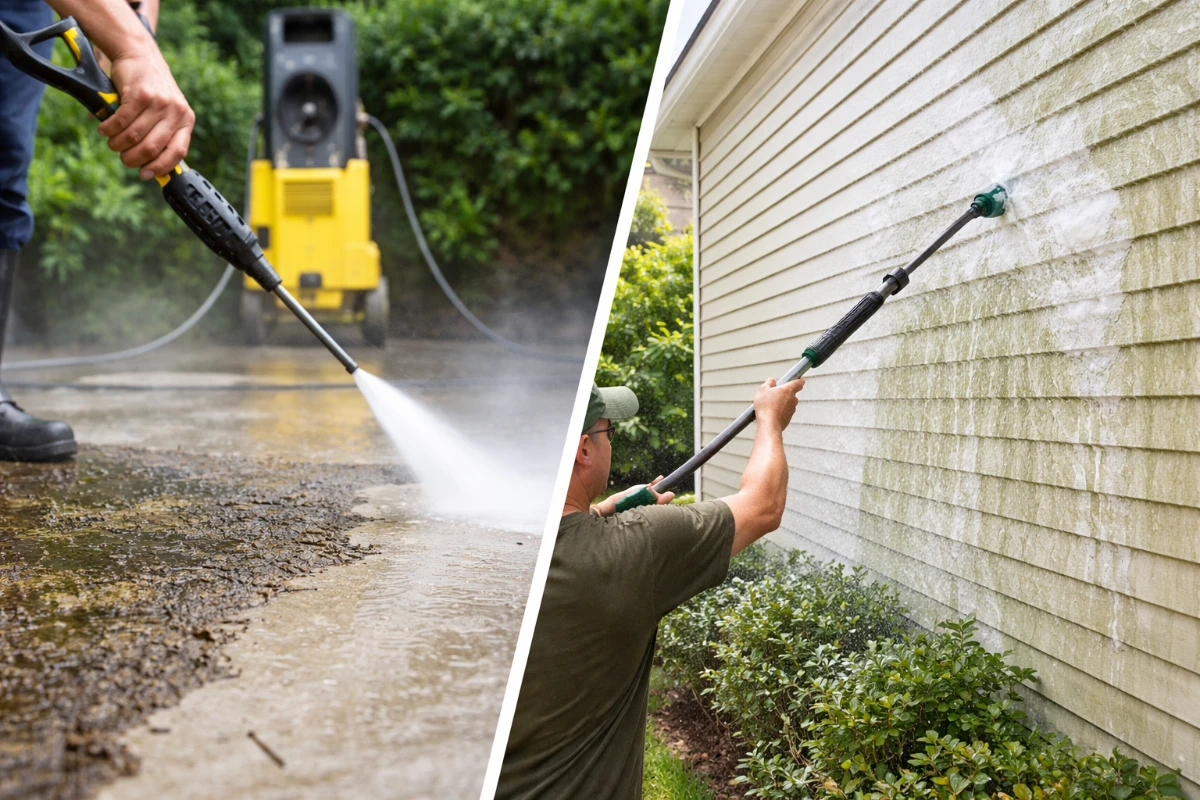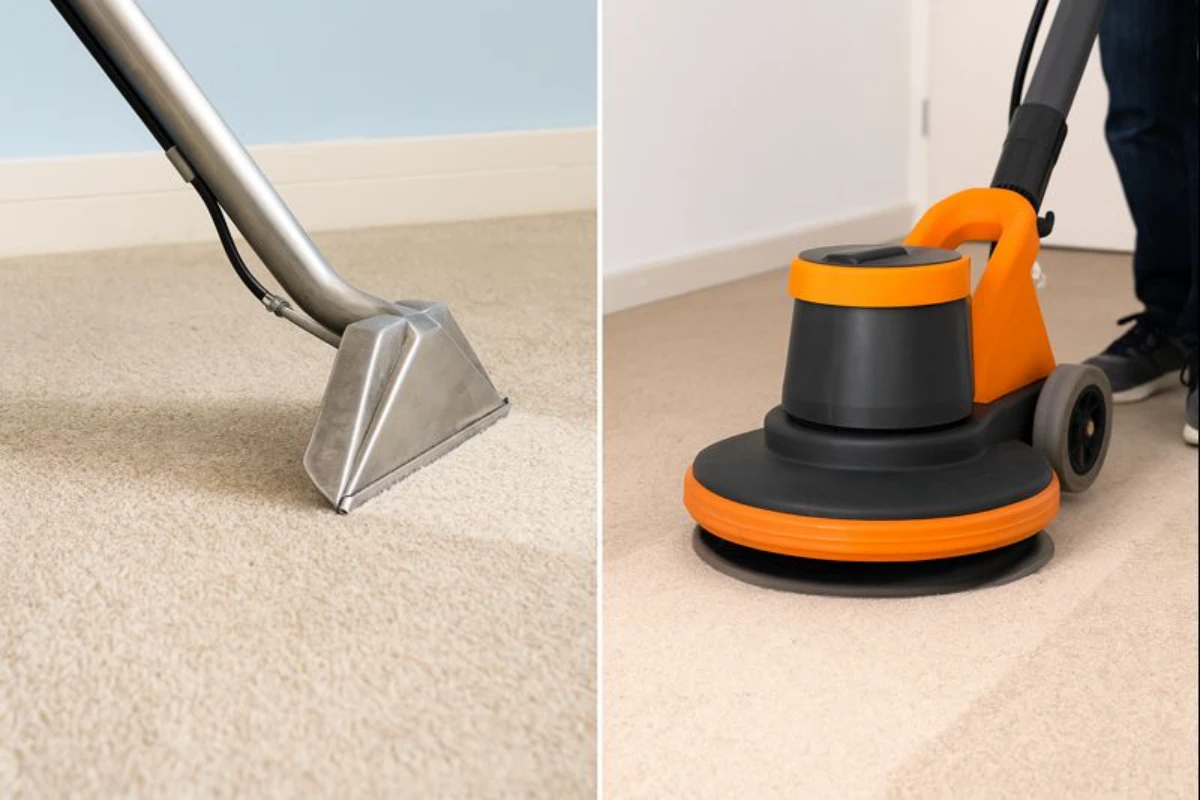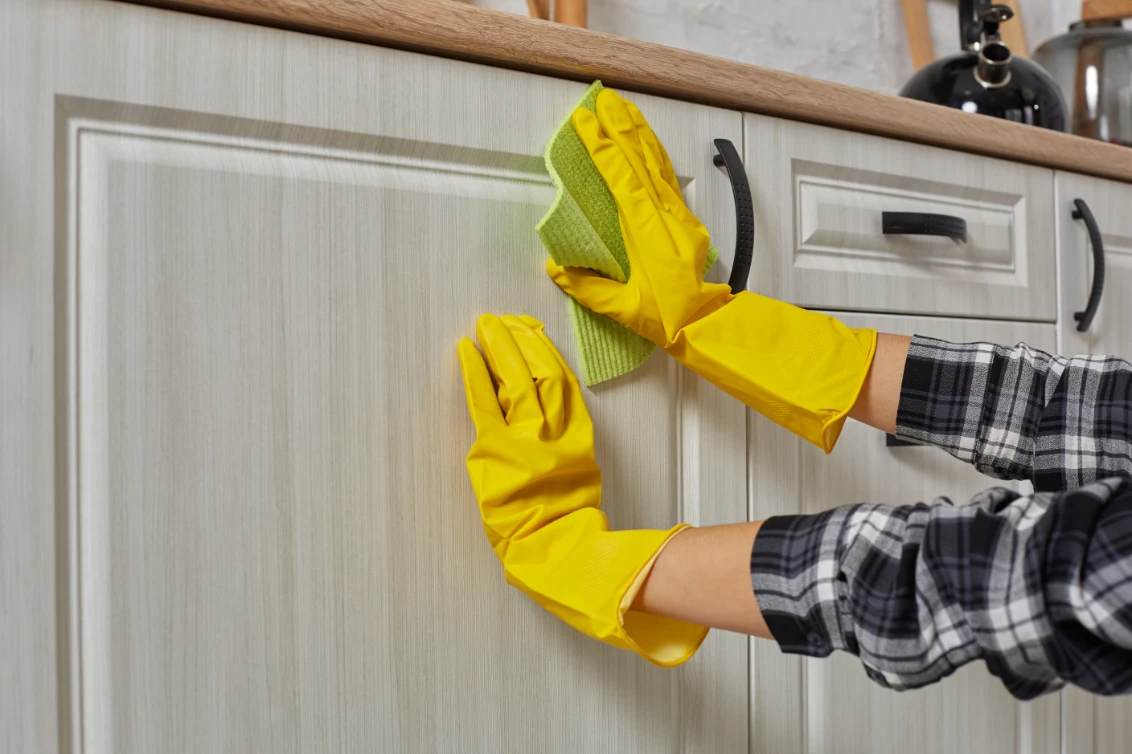If you run a warehouse, you know that mess builds fast and it affects your workflow, so understanding the right warehouse cleaning frequency is essential. In this blog our cleaning professionals break it down to help you understand what a solid cleaning schedule looks like, why it matters, and how a commercial cleaning partner can simplify it. We’ll draw from Interworld Cleaning in Baltimore’s approach.
Why Cleaning Frequency Matters
A warehouse isn’t like an office. It’s bigger. It handles heavy loads. It has more foot traffic, more machinery, more risk. Clean spaces reduce accidents, improve efficiency, and protect stock. If you let cleaning slide, you invite hazards: slips, contamination, damaged goods. A proper commercial cleaners team makes a big difference.
When you define your warehouse cleaning frequency, you’re setting a rhythm. Too little, and problems pile up. Too often, and you overpay or waste time. The goal is smart, right-sized cleaning.
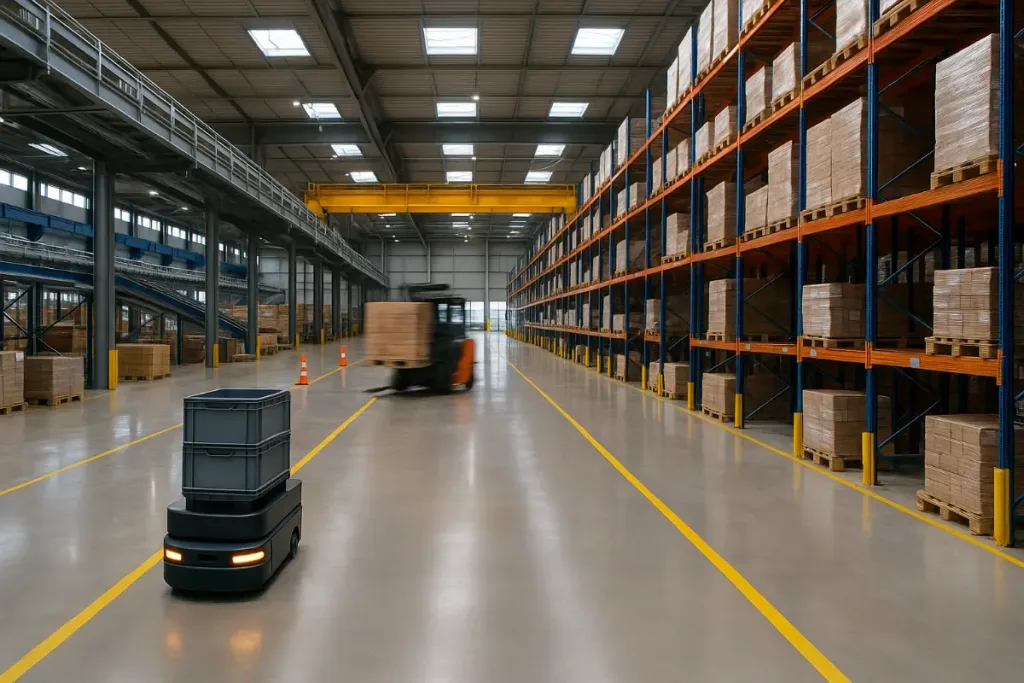
Automated equipment and a forklift moving goods inside a warehouse.
Key Factors That Determine How Often You Should Clean
Your warehouse cleaning frequency depends on several things. First, look at how busy your space is. A warehouse with constant forklift traffic, incoming shipments, and round the clock work needs cleaning far more often than one that’s quiet and lightly used.
Next, consider what you store. Food, pharmaceuticals, or chemicals require strict cleaning routines to stay compliant and safe. Warehouses holding dry goods or packaged materials can follow a more moderate schedule.
Flooring and equipment matter too. Concrete floors, metal racks, and forklifts leave behind more dust, tire marks, and residue. Surfaces designed for easy cleaning can stretch your schedule a little longer.
Regulations are another key factor. OSHA and local safety codes sometimes specify cleaning intervals or sanitation requirements. A qualified commercial cleaning company should be familiar with those standards and help you stay compliant.
Finally, weigh your priorities and budget. If uptime and safety are your top goals, you’ll clean more often. If you’re cutting costs, you can reduce frequency, but never at the expense of safety or product quality.
What Does Each Cleaning Level Cover?
Daily / Every other day:
Clear debris, pallets, trash, sweep accessible floors. Wipe high traffic zones and check and clean forklift tracks.
Weekly:
Mop or scrub main floors. Dust racks and shelving, remove spills and check restrooms / break area if on site.
Monthly:
Scrub floor edges, under racks. Clean lighting fixtures, high dust. Deep clean machine zones and inspect drain, floor condition.
Quarterly (or less frequent):
Strip and seal floors if needed. Clean overhead structures, skylights and review cleaning plan and update.
This layered approach is what keeps operations smooth. It’s the backbone of warehouse maintenance cleaning and pairs with routine warehouse cleaning, the daily or weekly upkeep that keeps dust and debris from piling up.

How Does a Commercial Cleaning Company Fit In?
When you work with a professional team, you get structure. They bring trained crews, right supplies, and proven systems. They understand commercial cleaning services in Baltimore, including industrial/warehouse environments.
Here’s what to look for:
Clear scopes: they tell you what gets cleaned and when.
Flexible plans: they adapt frequency as your needs shift.
Checklists and reporting: proof that tasks are done.
Safety-first mindset: green products, safe equipment. Interworld emphasizes eco-friendly methods.
Transparent pricing: no hidden fees when you schedule effectively.
If you don’t hire professionals, someone in your crew may have to handle cleaning around operations. That often means cleaning is delayed or half done. A full-service company frees you up and gives you peace of mind you need.
Balancing Cost vs. Benefit
You may worry that if you clean more often, it costs more. True. But think of cost this way:
Cleaning prevents damage or scrap.
Reduces downtime for cleaning-related accidents.
Improves worker morale and productivity.
Works as an investment in maintenance.
That’s why you want your warehouse maintenance cleaning to be well scheduled. For many operations, weekly cleaning hit the sweet spot between “good enough” and “overkill.”
Signs You Need to Increase Frequency
Look out for these warning signs and if you see them, ramp up cleaning:
Dust accumulates on racks, machines.
Spills sitting overnight.
Frequent forklift skid marks.
Odors or pest sightings.
Safety incidents linked to floor or clutter.
If those show up, your current warehouse cleaning frequency isn’t cutting it. Call your commercial cleaning company and renegotiate a tighter schedule.
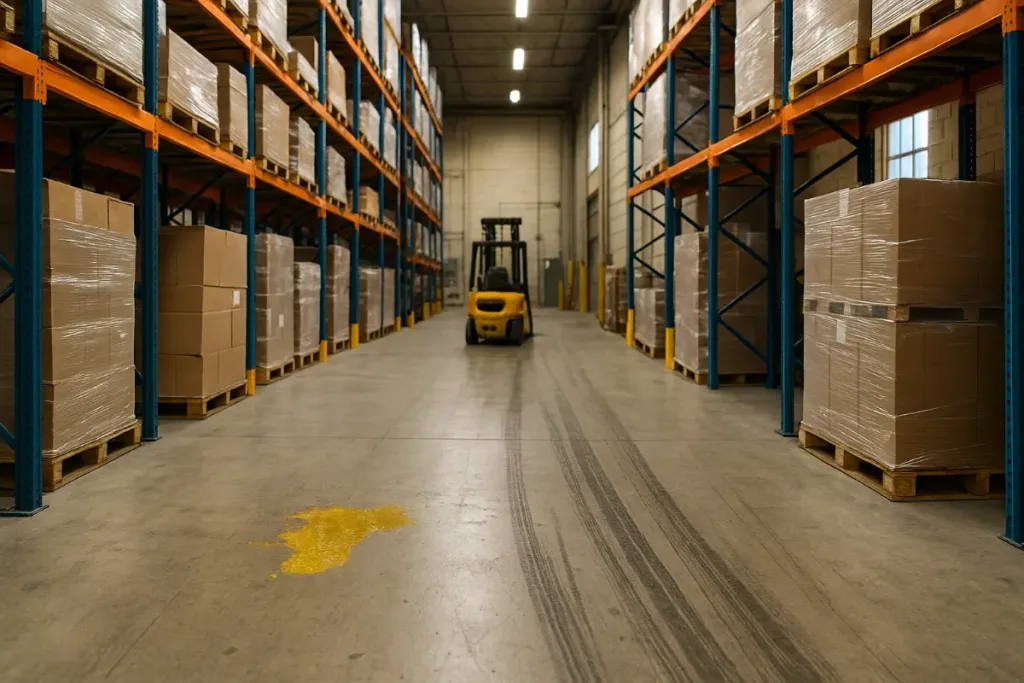
Signs You Can Reduce Frequency (Carefully)
On the flip side, you may be able to dial back, only if you monitor:
Low traffic, minimal movement of goods.
Floors stay clean between visits.
No safety or product issues.
Cleaning costs dominate your budget without return.
In this case, you might shift from weekly to bi-weekly while keeping a monthly deep clean. But make sure you’ve established a baseline first. Then relax the schedule if you see consistent performance.
Put These Tips Into Action With Interworld Cleaning!
Don’t wait until cleaning becomes a crisis, take action now. Start by contacting Interworld Cleaning to assess your warehouse: traffic flow, stored goods, and equipment areas. Then, talk to our professionals to agree on a schedule that fits your needs. We recommend weekly cleaning with monthly deep cleans. We cover the duties such as floor sweeping, racking dusting, and machine area wipe-downs. You can track the results to see if your floors stay cleaner and spills are handled faster, then adjust the plan after a few months based on our performance.

Since Interworld Cleaning is local in Baltimore, MD and specializes in commercial spaces, we have the right team to handle your maintenance needs. Our expertise keeps your workspace safe, organized, and efficient so you can focus on running your business.
Call Interworld Cleaning today, get a quote, and create a cleaning plan that truly works.
